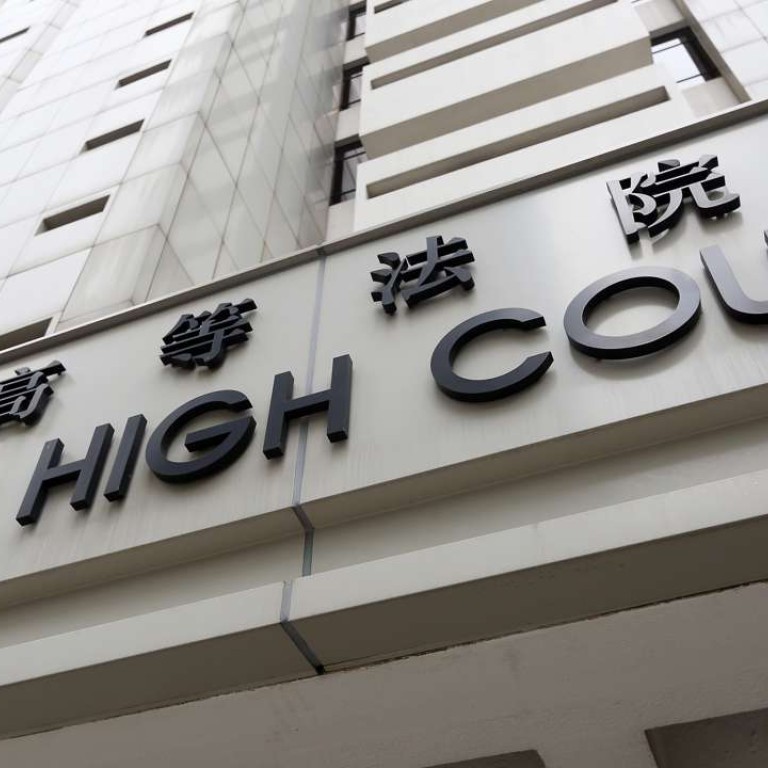
Hong Kong government to take no action against internet-using jurors – at least this time
Department of Justice was considering whether to prosecute jurors who did internet research of a court case they were involved in; action may be taken in future cases
The Department of Justice has decided not to press charges against jurors at a criminal trial who allegedly breached contempt of court rules by deliberately collecting outside information from the internet, after Hong Kong’s appeal court faced its first such challenge to the system of trial by jury.
A leading media law academic suggested the courts put in place measures such as asking jurors to sign a specific declaration, as is done in some US courts, to ensure jury members understand what is expected of them.
On February 29, the Court of Appeal handed down its decision in a case against Chen Huandi, who was convicted of one count of trafficking in a dangerous drug before a judge sitting with a jury.
The sole ground of appeal was that Chen did not receive a fair trial on the basis that a juror had allegedly carried out research on the internet about the case and discovered that the hearing was a retrial.
The Court of Appeal eventually ordered another retrial after it found that two members of the jury had acted contrary to the trial judge’s express directions by doing their own research about the case on the internet after they were empanelled and before the verdict was delivered.
In giving reasons for its judgment, the appeal court noted the case highlighted the challenge that the use of the internet was imposing on trials by jury.
Despite its concern over the “irregularity”, it decided not to pursue the matter further against members of the jury who had acted contrary to the trial judge’s directions.
“[This] is the first case where such jury irregularity is brought to the attention of the Court of Appeal and we thought, in fairness, they should be clearly and firmly warned of the serious consequence first,” the judges ruled.
The appeal court suggested trial judges stress the importance of not doing internet research about a case in their opening speech to the jury and in summing up.
“Now that we have given the warning, if jurors in the future do not heed the judge’s directions and carry out internet research about the case, the court will refer the matter to the Department of Justice for possible or consideration of prosecution for contempt,” the judges added.
The Department of Justice, shortly after the appeal court’s February decision was handed down, told the Post that it would study the judgment in detail before deciding whether any further action would be necessary.
Nearly five months later, the department said in reply to the Post’s inquiries that it had decided that no contempt proceedings would be initiated against the offending jurors in the case.
It said it had taken into account all relevant circumstances including the comment of the appeal court that the case was the first of its kind brought to its attention.
Yet the department echoed the court’s warning: “In future, where a juror breaches the judge’s direction and researches the case, he or she may be liable for contempt of court and upon conviction, be sentenced to imprisonment.”
Doreen Weisenhaus, director of the media law project at the University of Hong Kong’s Journalism and Media Studies Centre, said courts all over the world, including in the UK, US and Australia, had been grappling for years with how to control juror use of the internet.
“The increasing ease and commonality of using the internet in everyday life, especially with smart phones, make it difficult for citizens to ‘turn off’ this tendency while on jury duty,” she said.
The academic, whose book Hong Kong Media Law is widely read by the city’s practising journalists, said the courts needed to do a better job in informing jurors of what was expected of them and what the consequences were for not following guidelines.
“What is most important is how clear and consistent the rules are and how they are communicated to the jurors,” she said.
Weisenhaus said the judiciary should improve juror education by including this information in materials distributed and videos shown to jurors as they showed up for duty and the information should be posted on the judiciary website.
“Just saying it once at the start of the trial does not provide sufficient emphasis. They should also consider having the jurors sign a declaration that they understand the rules as explained to them, as is being done in some US courtrooms,” she said.

